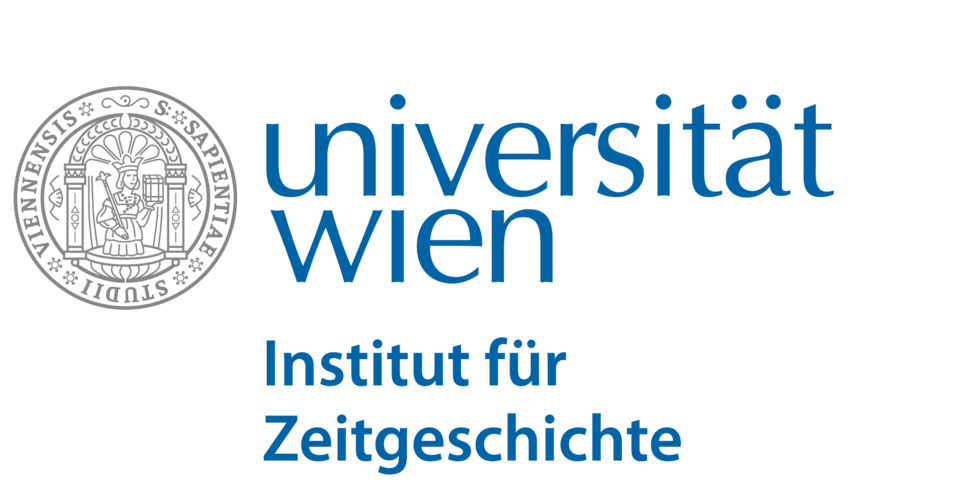Arbeitgeberin: Universität Wien (Institut für Osteuropäische Geschichte; Institut für Zeitgeschichte)
Arbeitsstelle: Institut für Osteuropäische Geschichte; Institut für Zeitgeschichte
Gefördert durch: FWF Austria
Von - Bis: 01.08.2021 - 31.07.2024
Bewerbungsschluss: 30.05.2021
First World War on the Eastern Front laid down the key trends in the development of environmental discourses and practices in the countries of Central and Eastern Europe. The study of processes of destruction and reconstruction of the environment at the end of the existence of the multinational empires of Russia and Austria-Hungary can bring us closer to understanding the difficult relationship between man and nature in the twentieth century, adding to studies on antropocene.
“Great War and Anthropocene: Empire and Environment in Eastern Europe/ Erster Weltkrieg im Antropozän: Umwelt und Imperienzerfall in Osteuropa
Projekt Konfliktlandschaften Galizien im Ersten Weltkrieg (Kooperationsprojekt Uni Wien – Päd. Uni Jaroslawl), funded by FWF Austria
Title “Great War and Anthropocene: Empire and Environment in Eastern Europe/ Erster Weltkrieg im Antropozän: Umwelt und Imperienzerfall in Osteuropa“
Supervisors (joint): Prof. Kerstin Susanne Jobst (Osteurop. Geschichte), Prof. Kerstin von Lingen (Institut für Zeitgeschichte)
We invite interested PhDs to apply with the usual documentation on academic formation, a CV and a short draft (“Ideenskizze”) how you would pursue one of the following two PhD positions. Please make clear in which of the two positions you are interested!
Language requirements: German, English; Russian and an additional Eastern European language (Polish, Ukrainian) are very welcome
Abstract:
As far as the totalization of military operations and the impact of warfare on the environment is concerned, the First World War seems to be the decisive pivotal moment: the front lines cut through vast areas, on land and at sea; the use of chemical weapons and other technologies of destruction changed the landscape of the participating countries; and the frontline and rear areas experienced a sharp modernizing leap. The changes were so far-reaching that their effects, including in the discussion and practices of environmental conservation and use, can still be seen today.
The hypothesis of the project is that the First World War on the Eastern Front laid down the key trends in the development of environmental discourses and practices in the countries of Central and Eastern Europe: the desire for appropriation of nature and its conquest through giant technological projects (such as large dams), and attempts to ensure resource security through environmental policy. The study of processes of destruction and reconstruction of the environment at the end of the existence of the multinational empires of Russia and Austria-Hungary can bring us closer to understanding the difficult relationship between man and nature in the twentieth century. In addition, the project contributes to the current research discussions on the Anthropocene, on the concept of scorched earth, on the formation of belligerent landscapes and their perceptions in different cultures, and on an environmental-historical dimension of empire decay or imperial debris (to borrow from Stoler).
The project uses an interdisciplinary approach based on the concepts of environmental, cultural and transnational history, as well as military anthropology, scrutinizing official documents as well as ego documents and visual sources. The project departs from the concept of landscape — as a natural space and environment that is at the same time an agent of historical processes, an object of human influence and a social construction. It will investigate how processes of acculturation, destruction and symbolic appropriation of nature during wartime can be regarded as particular to the Eastern Front.
Due to the insufficient development of research tools and the fragmentation of the source base, the specifics of the socio-ecological history of the first industrialized war have so far not been subject to intensive academic research from the perspective of a cross-border analysis, referring to the war experience of the Russian and Austro-Hungarian Empires. The methodological originality of the research lies in overcoming the limitations of simply comparing Habsburg Austria and Tsarist Russia. We depart from the notion of shared space, which is the battlefield in Galicia.
Vienna work package, short description of projects
2 PhDs at Vienna University, Supervisors: Prof. Kerstin Jobst (kerstin.susanne.jobst@univie.ac.at), Prof. Kerstin von Lingen (kerstin.von.lingen@univie.ac.at)
PhD 1: Devastated Landscapes
The PhD project will investigate the problem of devastated landscapes following the project’s research agenda on three levels: first, by scrutinizing the impact of military techniques and strategies on battelefields and landscapes, for example by destruction through artillery and fortifications; secondly, by analyzing the impact of secondary destructions during the war, for example by deforestation effected by civilians, to gain heating materials during war; and third, by scrutinizing the long-lasting impact of modernization measures effected by Austro-Hungarian troops, as bridges, railroads and water supply systems within the areas of military operations and occupations during and after the war.
PhD 2: Public Health at the Eastern Front
This PhD project will investigate the impact of (military) medicine during and after the first world war at the Eastern Front in Galicia. The project will scrutinize the benefits and risks of medicine and sanitary troops by analyzing a threefold approach while following the project’s general research agenda: first, by mapping epidemic outbreaks (for example typhus) and the containment strategies during conflict, secondly, by zooming in into the problem of surgery and death of soldiers during military operations, and the challenge of disposing of the dead bodies in a safe way, to avoid epidemies, and at the same time finding a decent way of laying soldiers to eternal rest; thirdly, by analyzing the long-term effects of Austro-Hungarian sanitary troops in the region and their modernization impact, for example by building hospitals in the rear area, or implementing public health measures (epidemic precaution, vaccinations).
Kontakt
Sekretariat Institut für Zeitgeschichte
Erika Stiller-Lanz
erika.stiller@univie.ac.at

